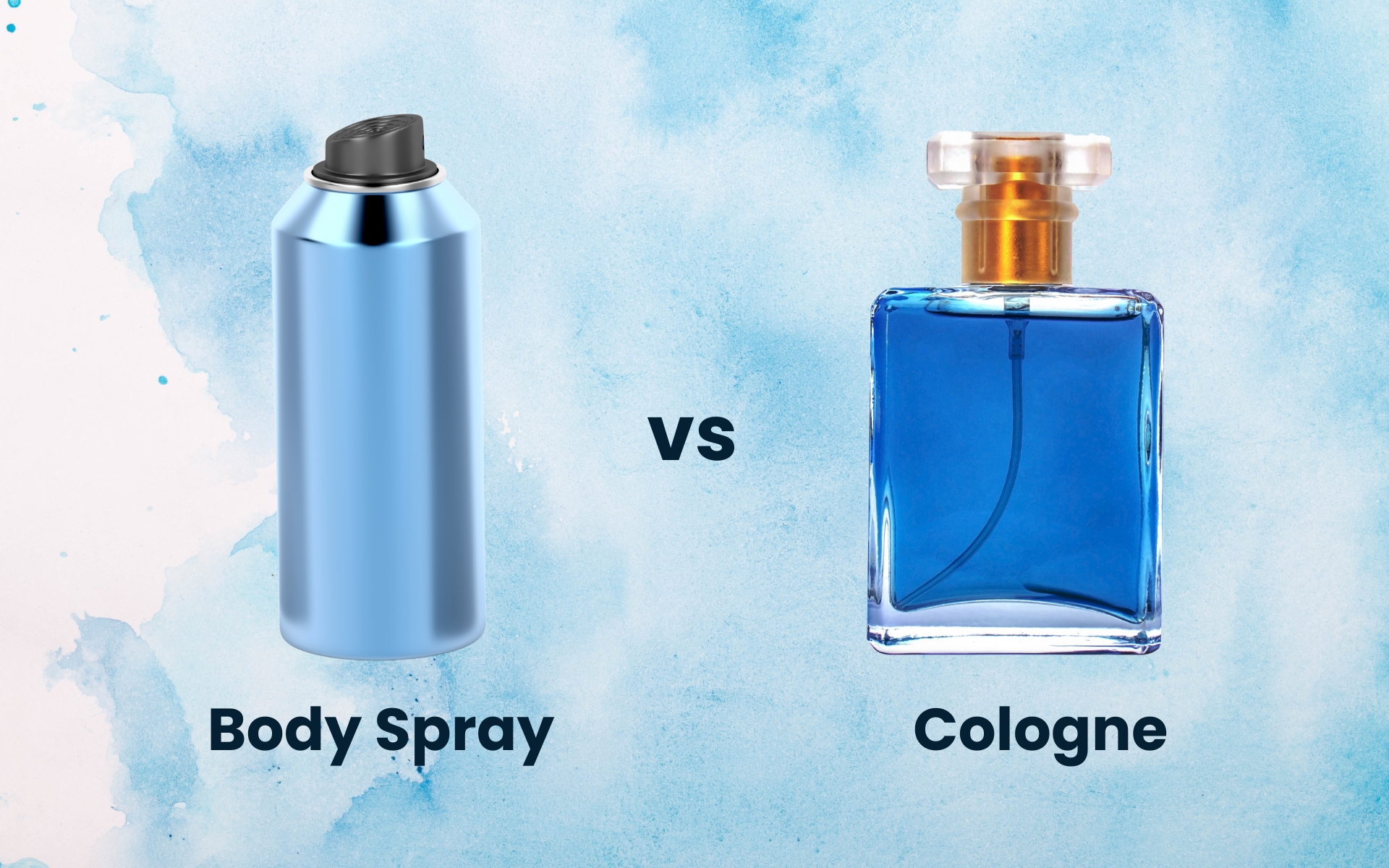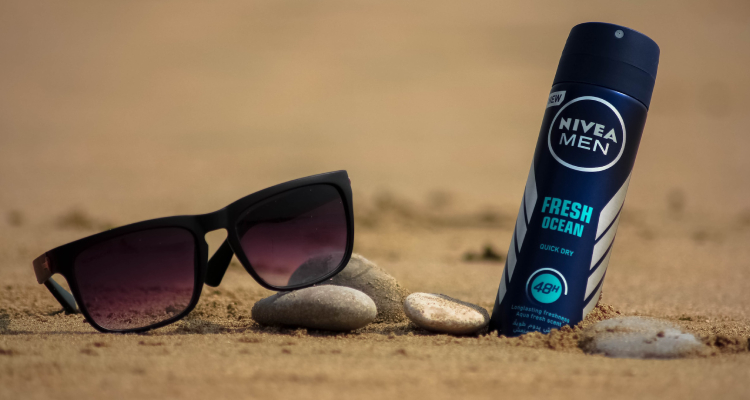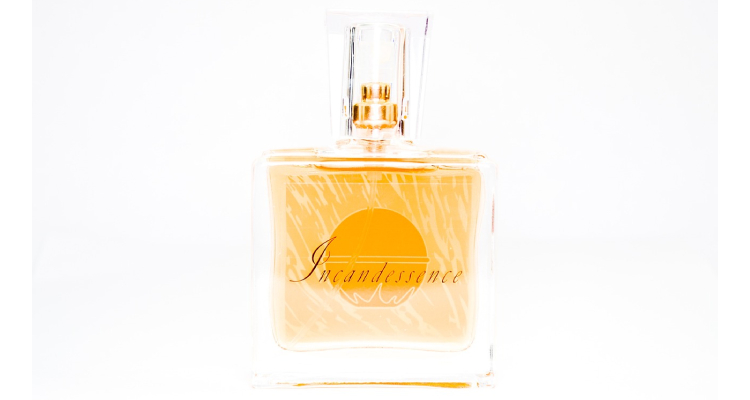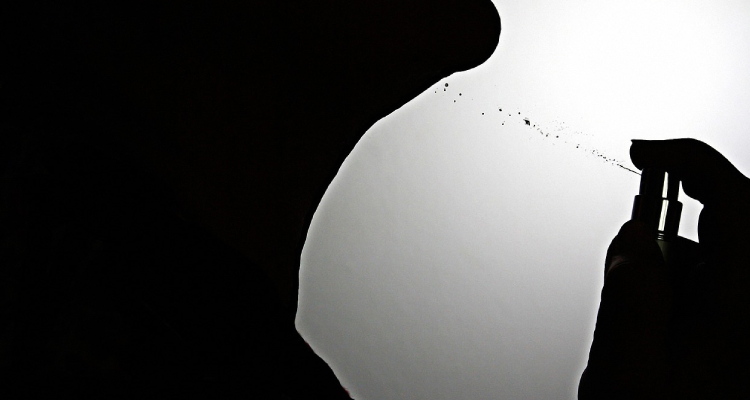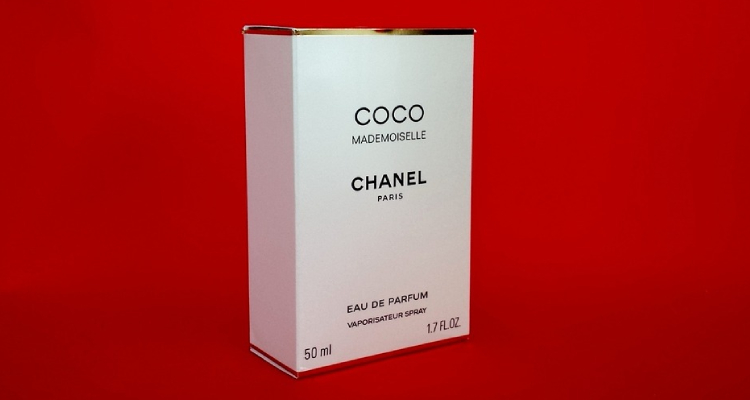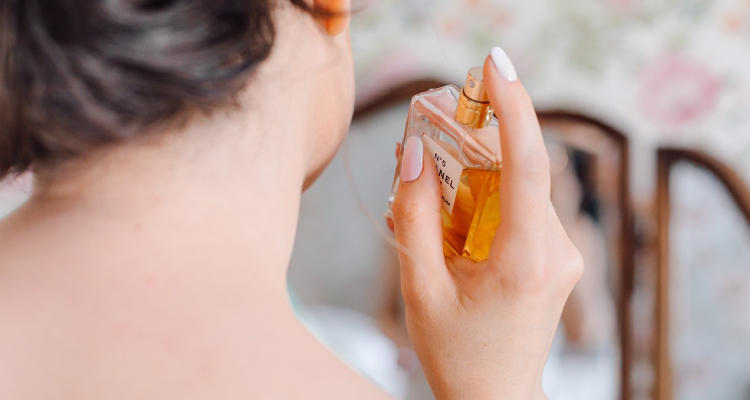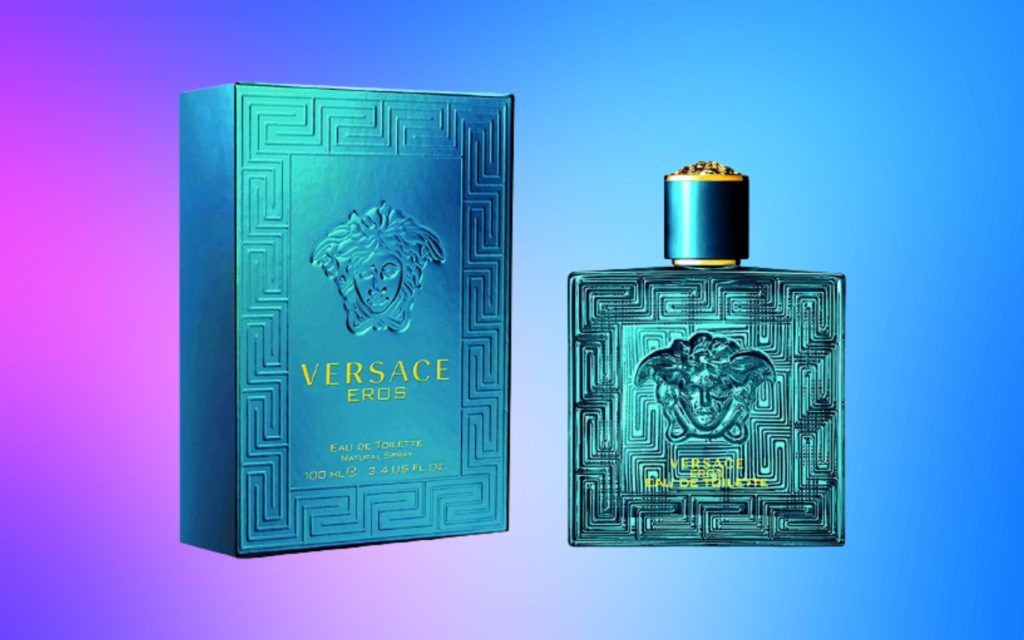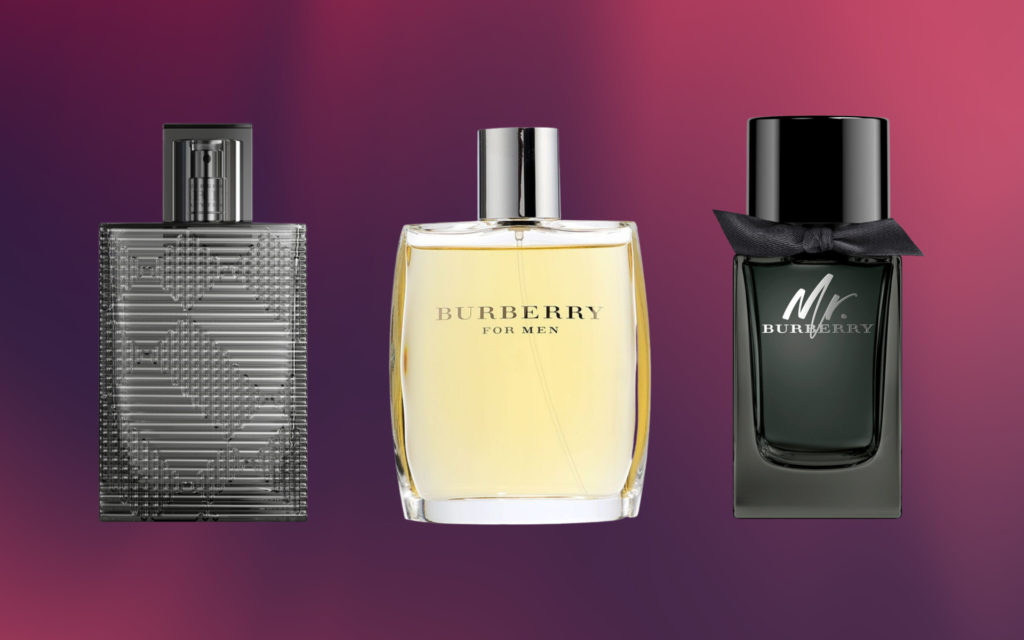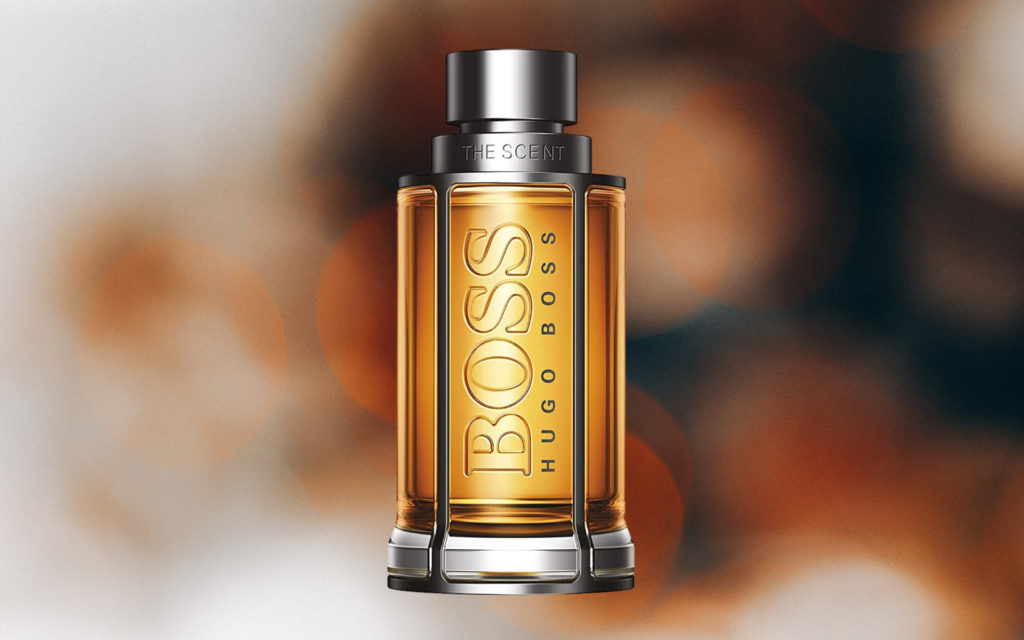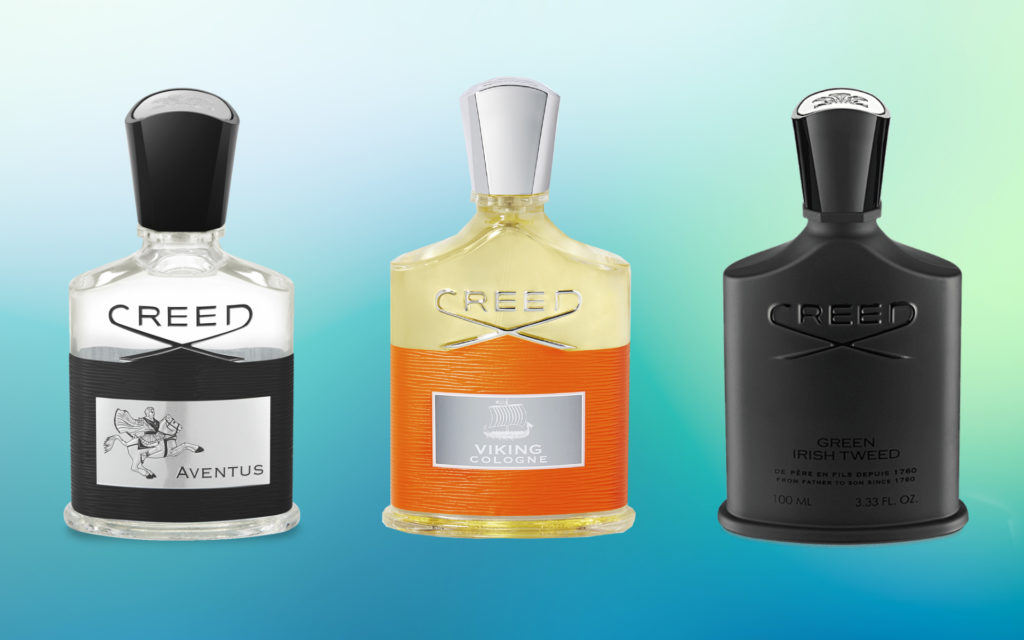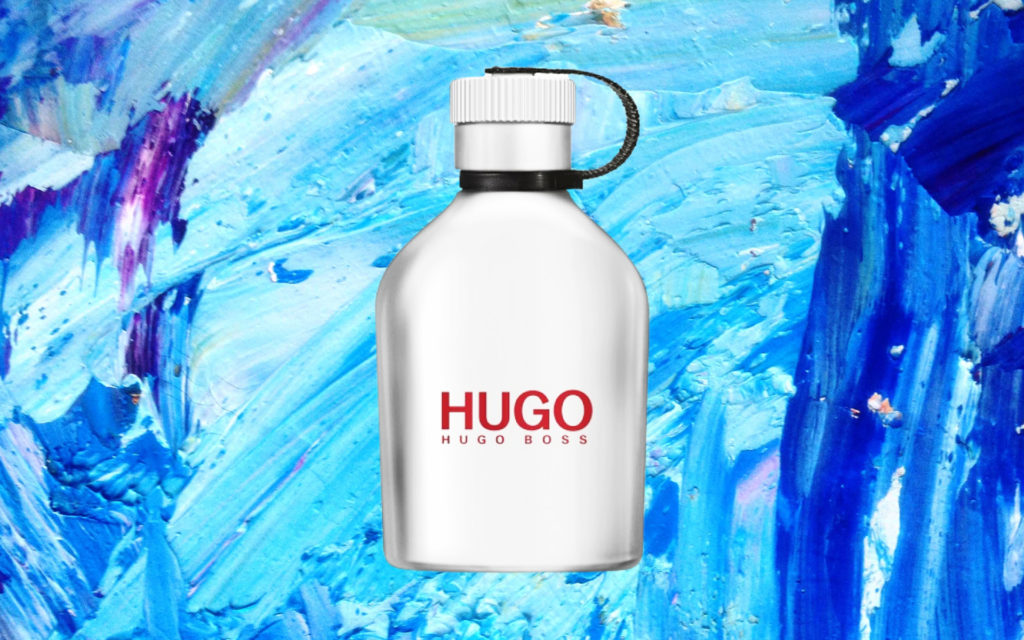Deodorant, perfume, body spray, cologne—a rose by any name may smell as sweet, and if it leaves you smelling sweet, too, who cares about the terminology, right?
Wrong.
Different types of fragrances have different properties and benefits, so knowing your body spray from your cologne will ensure that you’re smelling your best all the time.
Here’s everything you need to know about the two most commonly interchanged terms—cologne and body spray. What are the differences? What are the similarities? Take a look!
What Is Body Spray?
Body sprays are the perfect cooling tool on hot days, with a mix of alcohol, water, and essential oils. These fragrances leave you feeling fresh—this is their main purpose, as opposed to enhancing the scent and leaving you smelling good.
Therefore, the percentage of essential oils mixed with water and alcohol is kept quite low, which means that though body sprays smell great, the scent doesn’t last very long.
This low concentration and intensity, compared to perfumes and colognes, is also why body sprays are much cheaper.
In addition to refreshing you, some body spray varieties (those with aluminum or glycerin) may also act as antiperspirants and/or moisturizers. These can be spritzed on spots across your body that sweat excessively.
The light scent, wide area coverage, and misty texture of the spray let you spray these fragrances liberally across your body, clothes, and even your linen or bedroom.
Remember—though they’re very similar, body sprays are not the same as deodorants or even body mists. The former can’t technically be substituted for the latter, but if you don’t care about that, you can use any of these to smell good! Body sprays and deodorants can even complement each other, allowing you to use both together.
What Is Cologne?
Colognes are far more powerful than body sprays because they’re more concentrated.
These oil-based fragrances, even though they contain only 2% to 4% of fragrances/essential oils mixed with water and alcohol, can linger, intact, for up to two hours (or even longer, if you pick up a premium variety) as they are slightly thicker than body sprays and don’t evaporate as quickly.
This is the reason why body sprays are found on supermarket shelves while colognes are reserved for the fancy showrooms, or at the very least, a spot behind the supermarket billing counter, tagged with security labels!
The strength of the scent depends on the ratio between alcohol and essential oils. Alcohol is a scent carrier, lifting and distributing the aromatic notes and evaporating once its job is done. However, too much alcohol, as is the case with body sprays, means that the scent evaporates more quickly.
Therefore, a higher concentration of essential oils and a lower concentration of alcohol will give you a strong, lasting scent.
Body Spray vs Cologne: What Are the Differences?
To better illustrate how different body sprays and colognes are from each other, here’s a rundown of the factors that set them apart.
Composition and Purpose
If you’re looking for intense, long-lasting fragrances that are all about smelling noticeably good, colognes are the way to go.
These can last on you for anywhere between 2 to 12 hours, with reapplication rarely necessary (and if it is, only once or twice a day). Unsurprising, really, considering that a bottle of cologne has up to 25 times the amount of essential oils/fragrances that the average bottle of body spray does.
Body sprays are pick-me-up fragrance bombs that are meant to cool and refresh and possibly hydrate your skin and minimize body odor and sweat.
They come in guns blazing with their explosion of fragrance and freshness, but don’t last beyond an hour (or two, if you’re lucky!), which makes them perfect pre or post-workout and in hot weather.
The concentration of essential oil is only about 0.5%, which explains their short-lived nature (and also why you’ll find many options for well under $10!).
To put it succinctly, pick up a cologne if you want to smell great and/or develop your brown signature scent, but pick up a body spray if you want to mask bad body odor and stop yourself from smelling bad!
Price
Another obvious distinguishing factor between body spray and cologne is the price. Colognes are typically priced ten times higher than body sprays (read “mini fortunes”).
This is because of the difference in the concentration of essential oils. As mentioned earlier, colognes contain much higher levels of essential oils (2 to 4%) unlike body sprays, which are mostly water and alcohol.
This means that colognes have more of the “expensive stuff” in them, but many users find the prices justified because of their excellent sillage and the complexity of the scent.
The Complexity of the Scent
Colognes are more layered, deep, and well-balanced than body sprays—you can identify individual aromatic notes in colognes, such as floral, woody, smoky, etc., compared to the “overall”, typically unidimensional, shallow scent that body sprays exude.
You’ll also find that colognes evolve with time—these dramatic fragrances will smell different at lunchtime than they did when you first sprayed them on, with different notes emerging and combining to give you new scents. Body sprays just tend to remain static for the short while that they last, before fading away rather sadly.
The Method and Areas of Application
Colognes work best when applied directly on the skin of your pulse points, such as the base of the neck, the inside of your elbows and wrists, behind your ears, etc.
These spots are where the distance between the skin’s uppermost layer and the blood vessels underneath is the least, making them very warm. The heat emanating from these points helps the scent intensify and diffuse better.
(You can also spray into the air and walk through it, but this is an ineffective method of application.)
Body sprays can be spritzed all across the body, particularly on spots that sweat a lot, and on your clothes; there’s no targeted application. (FYI, spraying cologne on sweaty spots may result in an unpleasant smell and cologne on clothes can cause stains!)
Should I Use Cologne or Body Spray?
Which one you end up picking comes down to your preferences and needs.
Colognes are better suited for professional/formal occasions and settings, especially ones where you want to make a good impression, while body sprays can be used casually.
If you ask us, we highly recommend having both on your dresser table (yes, even the ladies—though traditionally aimed at men, there are absolutely no rules that say certain fragrances are only meant for a certain section of society, so if you enjoy cologne, break those stereotypes and do you!).
Having both lets you accessorize according to the occasion, and should you want to, you can even use both simultaneously (provided that the scents are complimentary).
For example, use a simple shea butter or aloe vera spray on your sweaty spots as a natural-smelling, crisp base for your cologne. Finish off with spritzes of your cologne on the pulse points for a beautiful, lasting combination of fragrances.
The Bottom Line
Whichever option you choose, remember that moderation is key. With colognes, because of their concentration, a little goes a long way. With body sprays, you can be a little more liberal, but know when to stop!
Nothing’s worse for you and the folks around you than a fragrance overkill—the amount of perfume you sport can make all the difference between classy and trashy.
To get the most out of your cologne or body spray, make sure you’re not just spraying them on, but spraying them on right.
